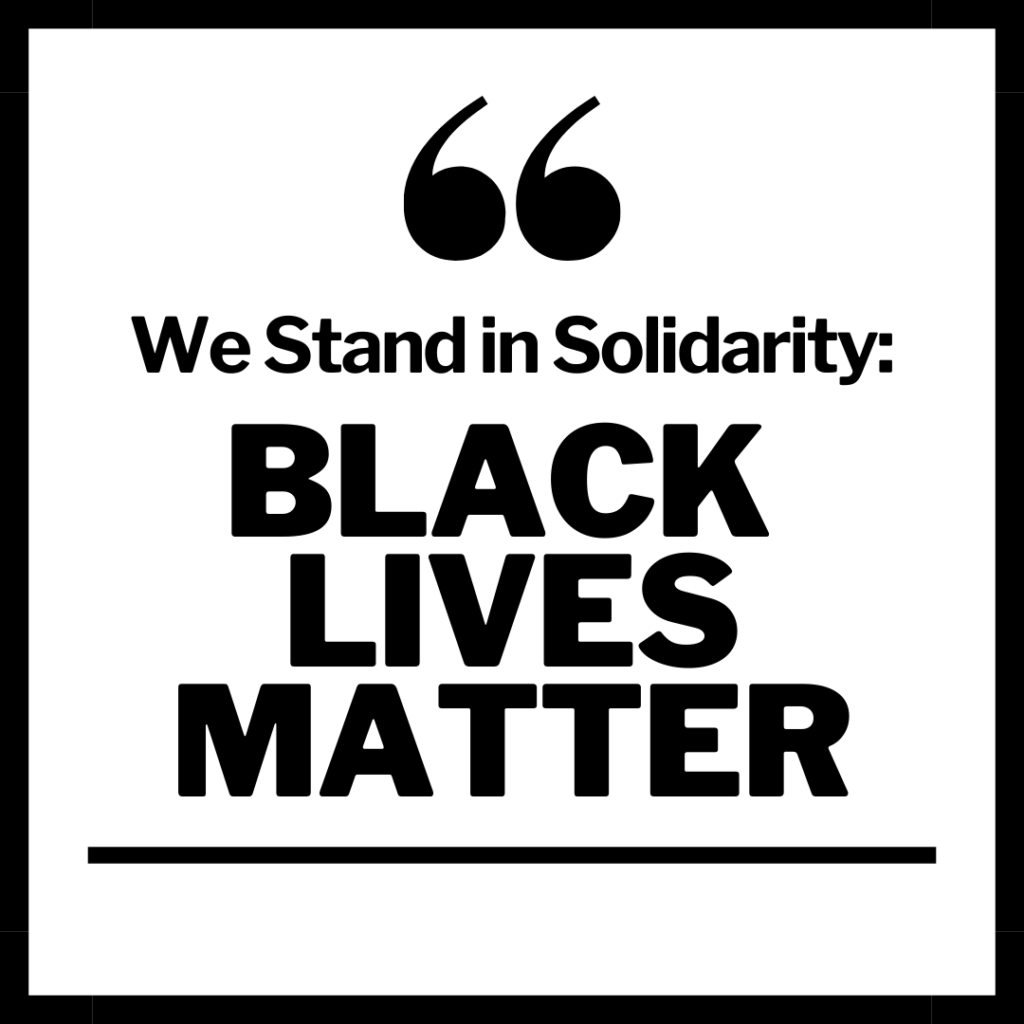During this moment of profound crisis, those of us who work with the Humanities Truck stand in solidarity with protestors around the world who have taken to the streets in response to the murder of George Floyd by Minneapolis police. Yet, we cannot speak of George Floyd without acknowledging that his death is hardly an aberration but one of many Black people killed at the hands of the police and white supremacists. We speak out against pervasive state violence and racial and economic inequality. We commit ourselves to struggle for inclusion and equity within the institution we are housed (American University). We agitate against gentrification, dispossession, and police brutality across Washington, DC, fight for economic and racial justice throughout the United States, and use our platforms to resist oppression and exploitation wherever we encounter it.
Police violence against and killing of Black people is one expression of white supremacy, but this racism is deeply entrenched in all American institutions. It’s no coincidence that the unprecedented growth of economic inequality within the United States over the past fifty years has occurred simultaneously to the massive expansion of the criminal justice system— both negatively and disproportionately taking their toll on Black communities. As economic inequalities deepen, we’ve seen how the police serve and protect private property and capital instead of Black lives. Those in power wield brutal force as a tool to preserve an inequitable system. Police violence and the criminal justice system are forms of state violence created and intended to induce terror and acquiescence. As we are witness to today, they also give rise to resistance and rebellion in pursuit of justice and equality.
In 1857, Frederick Douglass delivered his “West India Emancipation” speech at Canandaigua, New York, addressing those who counseled restraint, reform, and working through the system in the movement to abolish slavery. His words resonate today:
If there is no struggle, there is no progress. Those who profess to favor freedom, and yet depreciate agitation, are men who want crops without plowing up the ground. They want rain without thunder and lightning. They want the ocean without the awful roar of its many waters. This struggle may be a moral one; or it may be a physical one; or it may be both moral and physical; but it must be a struggle. Power concedes nothing without a demand. It never did and it never will.
We must participate in and support this struggle however we are able. While the Humanities Truck is grounded due to the COVID-19 pandemic, we are committed to doing what we can at this moment— offering our resources and support by working with communities across the District. We honor individual’s experience as a starting point, cultivate dialogue, and hone our collective consciousness to connect through dialogue and action— finding ways to mobilize our humanity.
Daniel Kerr
Director, Humanities Truck Project


